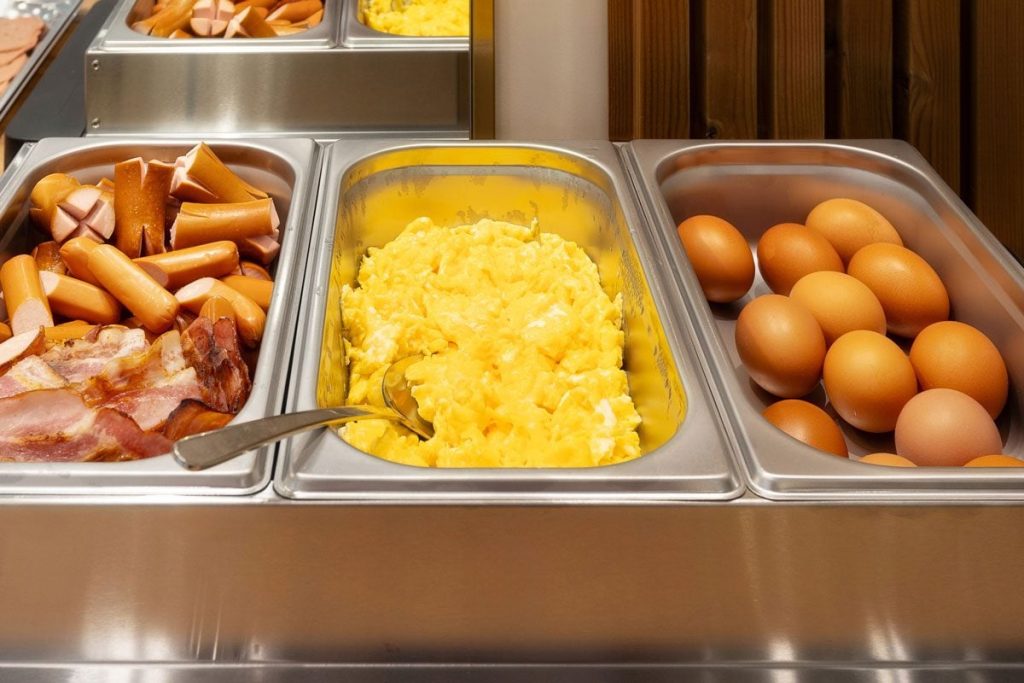Are buffet eggs as healthy as fresh ones?
Surprisingly, yes. “There are no significant nutritional differences between powdered and fresh eggs,” says Morris. A 2022 study published in Frontiers in Nutrition found that powdered eggs still contain protein, vitamin A, vitamin E, selenium, and zinc—just like the real deal.
Why do hotels use powdered or liquid eggs?
“Cost-effectiveness is a big reason,” says Morris. “Fresh egg prices have surged recently, largely due to avian flu outbreaks.” Powdered and liquid eggs are more stable in both price and shelf life.
They’re also more convenient for chefs. Cracking hundreds of eggs takes time—using powder or liquid eggs speeds things up. Additionally, some resorts are required by health regulations to use pasteurized egg products at buffets.
This applies beyond hotels: cruise ships, college cafeterias, hospitals, and resorts often rely on powdered eggs too.
Should you skip the buffet eggs?

That’s up to you. They won’t taste the same as fresh eggs, and the texture can be off-putting. But nutritionally, they’re still a solid source of protein.
“I usually avoid buffet eggs because of the taste and texture,” says Morris. “But if there aren’t other protein options, I’ll eat a small portion to round out my breakfast.”
You can also doctor them up. “I like to add salt, pepper, hot sauce, or salsa,” she adds. “If available, I’ll mix in cooked vegetables, bacon, or avocado for flavor and nutrients.”
The bottom line:
The eggs at hotel buffets are almost always made from powdered or liquid egg products. They’re safe and nutritious, but they often taste bland and may have sat out too long. If you’re concerned about flavor, freshness, or food safety—or if you have food sensitivities—it’s best to ask questions or skip the eggs and choose another breakfast item.

